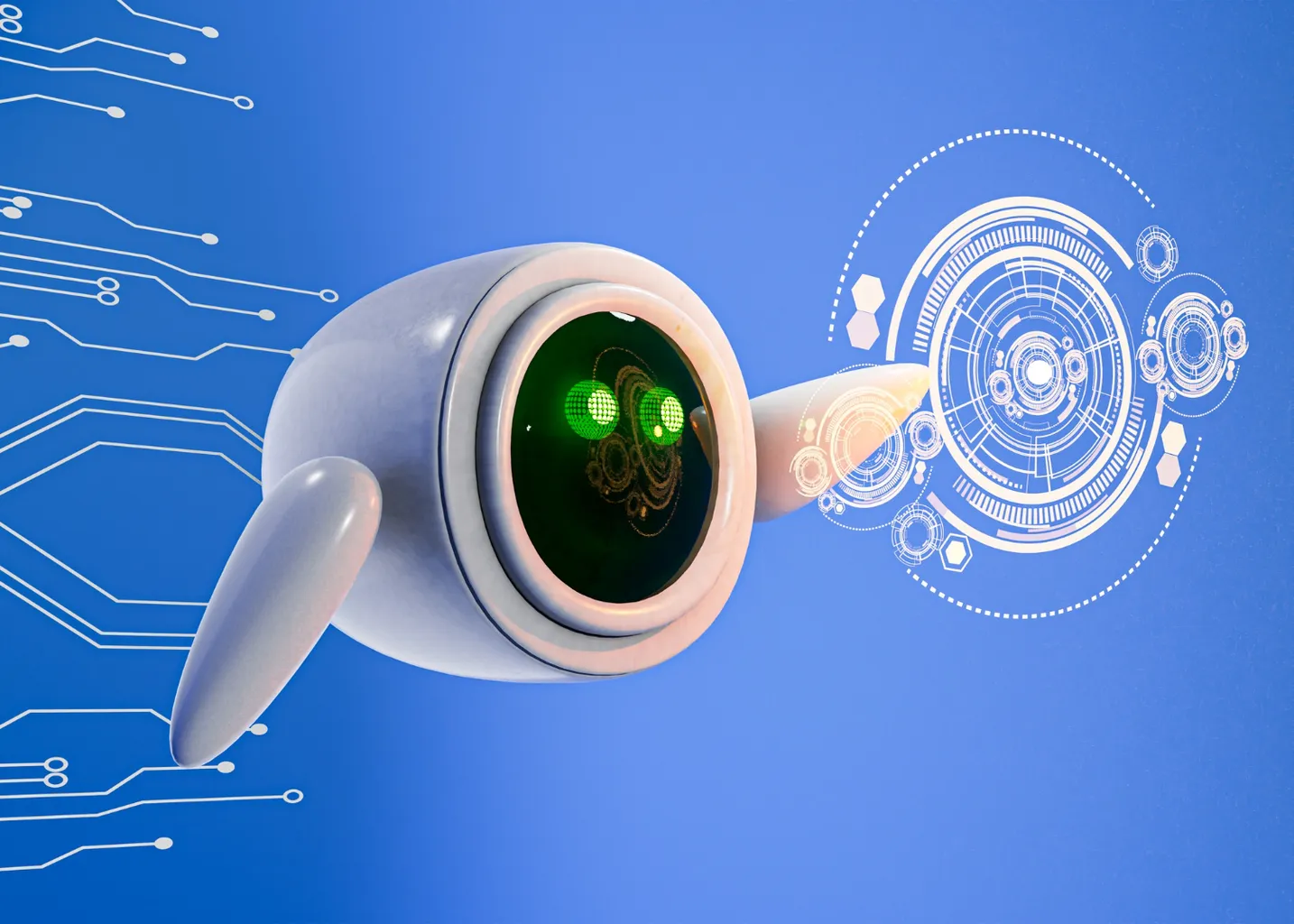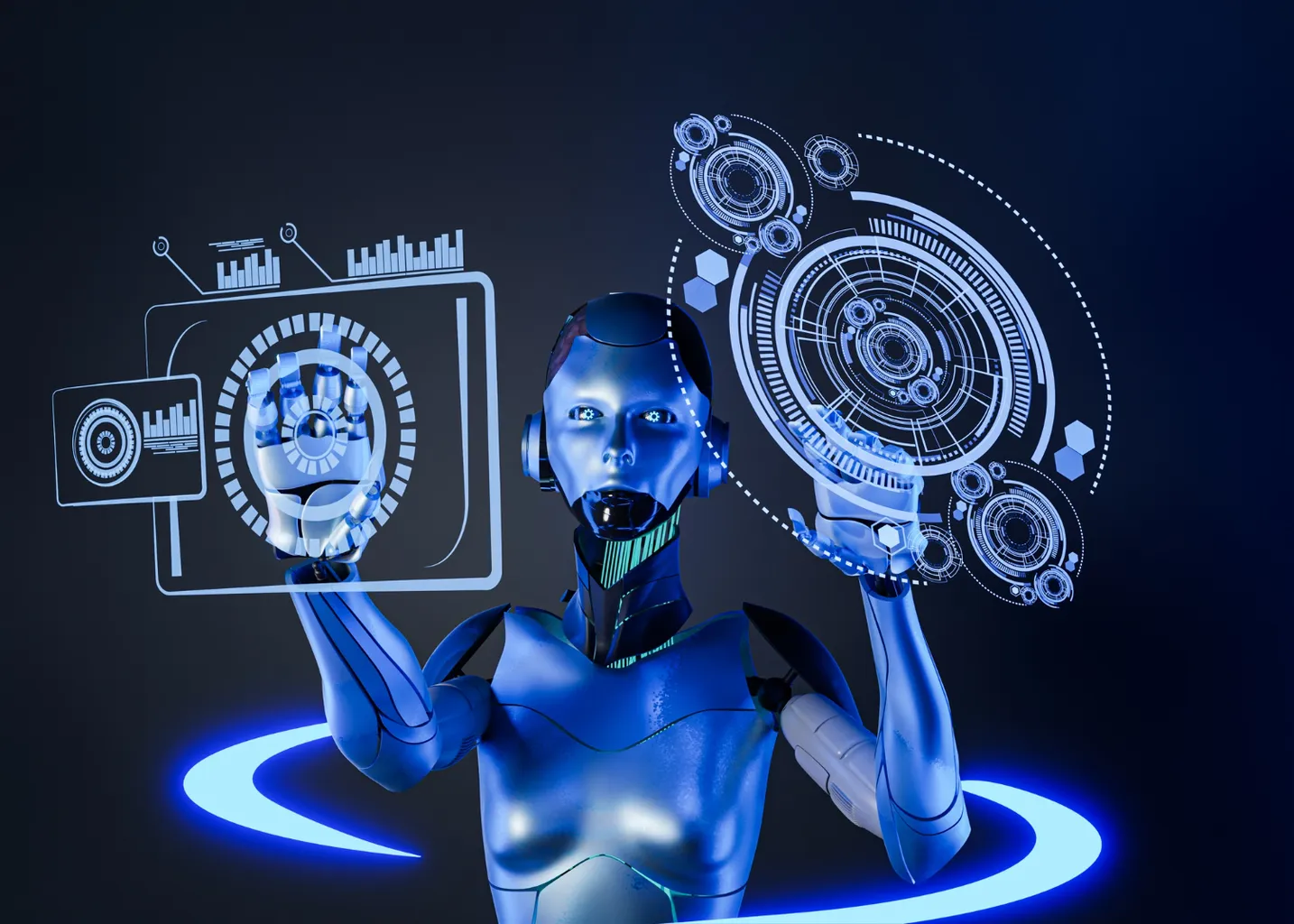From “MOM! Should I keep my raincoat for the field trip?” to “Alexa! Is it going to rain next week?” AI has taken up a lot of space in our lives. Artificial intelligence (AI) stands on two pillars: data and storage. AI is AI because the machine that once used to obey our commands can now store data and use the findings to make its own decisions. Today, we have enough data for every individual through mobile devices that one gets customized ads, diet plans, and hotel recommendations. AI has started to act like oxygen in our lives. We breathe it in and out without even realizing it!
Artificial Intelligence is astonishing. A simple machine that has been fed data aids in making decisions. The basis of this intelligence is the same as when we were children. We first dipped our little fingers in the coffee mug and realized, Oh! It's Hot! And it burns! And it hurts! So, the next time we saw that mug again, we made sure not to go close to it because we remembered how bad it hurts. This simple phenomenon of remembering what elements lead to what events makes AI function and generate results.
The use of AI in software testing to support and execute test automation is making QA more efficient and seamless. The journey from manual testing to automation is in full swing, and test automation offers us a variety of benefits:
AI in software testing helps smartly recognize requirements and fetch relevant data and test cases. It can then suggest test case scenarios that best fit the given situation.
Now, remember this work is easy for these AI machines. They can do it quickly and over and over again without complaining. The only thing is that they cannot do this on their own. Why? Because they are unaware of the emotional uncertainty of users and the environment in which the application will be working. For example, in a banking app, the user has to enter a password to do transactions, making it an ideal scenario for the machine. But a human tester might also consider the possibility of security threats such as lost or stolen passwords. Hence, they consider adding another security check, like biometric verification, for transaction confirmation. Therefore, AI will always need manual testers to approve their recommended test cases and think of new and unique scenarios to be covered. They are here to assist testers, not to completely wipe them out.
Finally, automation can do a lot more than recommend test cases. Powerful test management tools have the following AI-driven testing:
Automation testing tools can help run functional and non-functional tests such as unit, integration, and system testing. These tests seem simple but are very time-consuming. One has to write and run test scripts and test cases that imitate the real user, where the goal is to check that the software can perform in every kind of situation and user input. This automation in test cases does two things to make the testing process smooth. First, AI is proactive, which means as the software scale increases, it takes over the self-healing process preserving the validity of the previous test. Second is the maintenance tasks, where software testers constantly assess various futures functionality to ensure everything is in order and working smoothly.
While its capabilities have significantly increased over the last few years, the role of AI in software testing is still very limited. Software testers still have to wait a little longer to fully leverage AI's capabilities to improve testing automation. In the coming years, there will surely be more advancements in this area that we can take advantage of to improve QA processes.
One major process that AI might impact in the future is test case generation. Currently, most AI-based test automation tools require pre-existing datasets and test cases. In the future, we can expect AI to generate test cases automatically based on the current state of the application undergoing QA. This will help ensure comprehensive testing and eliminate potential bugs and issues.
AI can also help with test prioritization. As applications get more complex with additional features and functionalities, it's difficult for testers to figure out which test they should run first. AI can help analyze the codebase thoroughly and identify the areas most likely to contain bugs and issues. This can help software testers run critical tests first, driving better test accuracy.
Moreover, AI can significantly improve the reliability and cost-effectiveness of QA processes by automating repetitive tasks and reducing the need for human intervention in certain software testing processes. It can also help reduce the amount of time and resources required for testing. AI will enable companies to deliver high-quality, flawless software faster and at a much lower cost.
With AI already revolutionizing at a rapid pace, it's only a matter of time before it transforms and automates most software testing techniques. By leveraging artificial intelligence in testing and staying up-to-date with the latest QA trends and practices, companies will be able to remain competitive and technically relevant for a long time, delivering high-quality software products that meet user expectations and UX goals.
The Rise of AI in Our Lives
Artificial Intelligence is astonishing. A simple machine that has been fed data aids in making decisions. The basis of this intelligence is the same as when we were children. We first dipped our little fingers in the coffee mug and realized, Oh! It's Hot! And it burns! And it hurts! So, the next time we saw that mug again, we made sure not to go close to it because we remembered how bad it hurts. This simple phenomenon of remembering what elements lead to what events makes AI function and generate results.
The use of AI in software testing to support and execute test automation is making QA more efficient and seamless. The journey from manual testing to automation is in full swing, and test automation offers us a variety of benefits:
- • It identifies defects quickly
- • It can determine the accuracy of software performance
- • It fastens the whole testing process and makes it efficient
- • It eliminates human intervention by taking over repetitive tasks

AI in software testing helps smartly recognize requirements and fetch relevant data and test cases. It can then suggest test case scenarios that best fit the given situation.
The Significance of Manual Testing
Now, remember this work is easy for these AI machines. They can do it quickly and over and over again without complaining. The only thing is that they cannot do this on their own. Why? Because they are unaware of the emotional uncertainty of users and the environment in which the application will be working. For example, in a banking app, the user has to enter a password to do transactions, making it an ideal scenario for the machine. But a human tester might also consider the possibility of security threats such as lost or stolen passwords. Hence, they consider adding another security check, like biometric verification, for transaction confirmation. Therefore, AI will always need manual testers to approve their recommended test cases and think of new and unique scenarios to be covered. They are here to assist testers, not to completely wipe them out.
AI-Driven Testing
Finally, automation can do a lot more than recommend test cases. Powerful test management tools have the following AI-driven testing:
- • Differential testing can identify the updates in a software’s security and code quality.
- • Visual testing assesses the user interface of an application by quantitatively measuring its reliability and usability.
- • Declarative testing examines how the software performs its function
- • Self-healing testing preserves the interface and other components after there are changes in the code
Automation testing tools can help run functional and non-functional tests such as unit, integration, and system testing. These tests seem simple but are very time-consuming. One has to write and run test scripts and test cases that imitate the real user, where the goal is to check that the software can perform in every kind of situation and user input. This automation in test cases does two things to make the testing process smooth. First, AI is proactive, which means as the software scale increases, it takes over the self-healing process preserving the validity of the previous test. Second is the maintenance tasks, where software testers constantly assess various futures functionality to ensure everything is in order and working smoothly.

The Future of AI in Software Testing
While its capabilities have significantly increased over the last few years, the role of AI in software testing is still very limited. Software testers still have to wait a little longer to fully leverage AI's capabilities to improve testing automation. In the coming years, there will surely be more advancements in this area that we can take advantage of to improve QA processes.
One major process that AI might impact in the future is test case generation. Currently, most AI-based test automation tools require pre-existing datasets and test cases. In the future, we can expect AI to generate test cases automatically based on the current state of the application undergoing QA. This will help ensure comprehensive testing and eliminate potential bugs and issues.
AI can also help with test prioritization. As applications get more complex with additional features and functionalities, it's difficult for testers to figure out which test they should run first. AI can help analyze the codebase thoroughly and identify the areas most likely to contain bugs and issues. This can help software testers run critical tests first, driving better test accuracy.
Moreover, AI can significantly improve the reliability and cost-effectiveness of QA processes by automating repetitive tasks and reducing the need for human intervention in certain software testing processes. It can also help reduce the amount of time and resources required for testing. AI will enable companies to deliver high-quality, flawless software faster and at a much lower cost.
Bottom Line
With AI already revolutionizing at a rapid pace, it's only a matter of time before it transforms and automates most software testing techniques. By leveraging artificial intelligence in testing and staying up-to-date with the latest QA trends and practices, companies will be able to remain competitive and technically relevant for a long time, delivering high-quality software products that meet user expectations and UX goals.
FAQs
It is unlikely that AI will eliminate the need for software testers entirely in the near future. While artificial intelligence (AI) can be used to automate certain aspects of testing, such as regression testing, many areas of testing still require human expertise and judgment. AI can also help testers by providing insights and identifying areas of the software that need more testing, but it cannot replace a human's ability to assess the overall quality of the software and ensure it meets the needs of end users. AI will most likely augment and assist testers, just like Testworthy!
Machine learning algorithms and techniques are used in AI testing to automate the testing process. Testworthy's AI-based software testing tools are trained on extensive sets of test cases and expected outcomes before being used to predict outcomes and identify potential bugs and issues. They can also help improve the speed and accuracy of software testing by performing tasks such as regression testing, test case generation, and test case prioritization.
Testworthy's AI-based software testing tools can help automate testing by learning from past test results, identifying patterns, and making predictions, all of which can help to improve the testing process's speed, accuracy, and efficiency. They can also help with test case generation, prioritization, and identifying areas of the software that need more rigorous testing. Testworthy's intelligent automated testing features can help reduce human error and improve overall software quality.